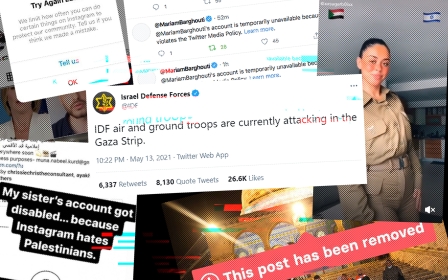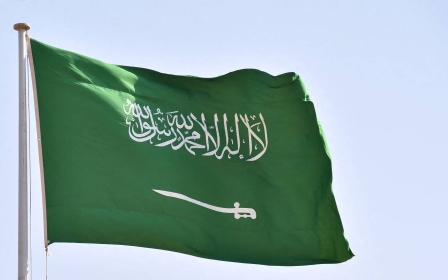Sharp rise in anti-Arab and Palestinian hate speech reported on Israeli social media

A new report published by the non-profit organisation 7amleh, which campaigns for Palestinian digital rights, has revealed that online hate speech against Arabs and Palestinians on Israeli social media rose significantly in 2021.
In its “Index of Racism and Incitement on Israeli Social Media in 2021,” the group monitored 620,000 conversations that included violence and incitement against Arabs and Palestinians, an increase of eight percent since 2020.
The annual report, which monitors the overlap of racist speech online and violent actions against Arabs and Palestinians throughout the year, showed a three-fold increase in incitement since 2020.
Violent speech against Palestinians, Arabs and their representatives constituted 11 percent of overall speech within Israeli networks - an unprecedented rate since 2017.
According to Tuesday's report, most of the violent speech took place on Twitter, with 58 percent of the recorded incitement found on the platform. Meanwhile, Facebook hosted around 19 percent of the recorded hate speech.
New MEE newsletter: Jerusalem Dispatch
Sign up to get the latest insights and analysis on Israel-Palestine, alongside Turkey Unpacked and other MEE newsletters
7amleh - the Arab Centre for Social Media Advancement, based in Haifa, found that the peak of violent speech online was recorded in March last year during the Israeli elections.
A second peak was recorded between April and May during Israel’s offensive against the besieged Gaza Strip, in which at least 256 Palestinians were killed.
During this time, Palestinians also took part in widespread protests against the forced expulsion of Palestinain families from the Sheikh Jarrah neighbourhood of occupied East Jerusalem.
“Social media platforms in the May uprising reflected what was happening on the ground, as hate speech notably increased during the uprising," said Nadim Nashif, director of 7amleh.
“Social media was used as a tool to organise violent and inciting attacks against Palestinians and Arabs, with its impact exceeding the digital realm into the real world.”
Middle East Eye delivers independent and unrivalled coverage and analysis of the Middle East, North Africa and beyond. To learn more about republishing this content and the associated fees, please fill out this form. More about MEE can be found here.




